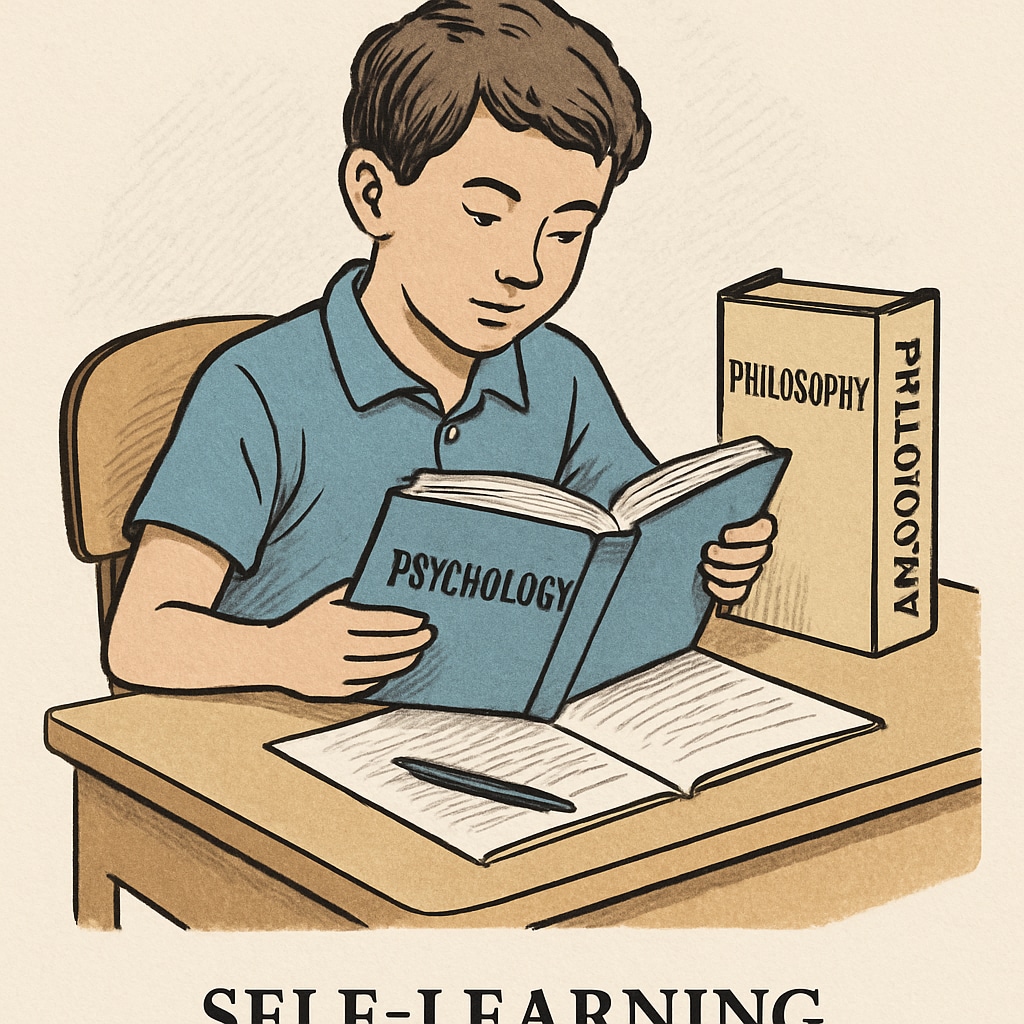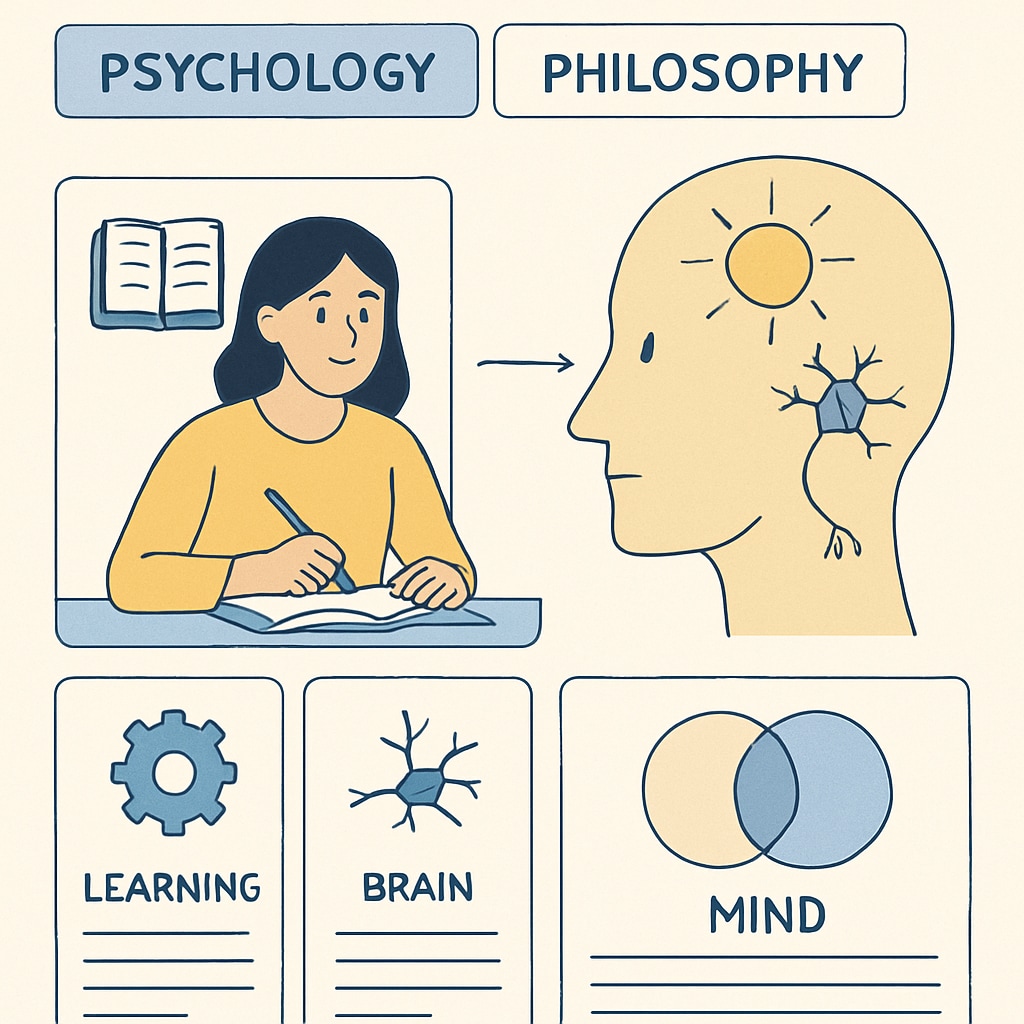Psychology, philosophy, and self-learning resources offer students a unique opportunity to expand their intellectual horizons beyond the school curriculum. For K12 students, developing an interest in these subjects can lay the foundation for critical thinking, empathy, and a deeper understanding of the world. This article explores how young learners can embark on a journey of self-education in psychology and philosophy, with tips, methods, and curated resources to guide them.
Why Study Psychology and Philosophy in K12?
Psychology (the study of the mind and behavior) and philosophy (the study of fundamental questions about existence, knowledge, and ethics) are intrinsically tied to the way we perceive and interact with the world. For K12 students, engaging with these disciplines can:
- Enhance critical thinking and reasoning skills
- Foster emotional intelligence and empathy
- Encourage open-mindedness and curiosity
- Build a foundation for lifelong learning and self-reflection
Unlike subjects with rigid curricula, psychology and philosophy offer flexibility, enabling students to explore topics at their own pace. However, navigating these fields requires structure and access to age-appropriate resources.

Practical Steps to Start Self-Learning
For students eager to delve into psychology and philosophy, the following steps provide a structured yet flexible approach:
- Define Your Interests: Identify specific areas of curiosity, such as ethical dilemmas, cognitive biases, or the philosophy of happiness.
- Start with Beginner-Friendly Resources: Use books, podcasts, and videos tailored to younger audiences. For example, Britannica’s Philosophy Page offers accessible explanations.
- Join Discussions: Participate in online forums or local study groups to engage with like-minded learners.
- Set Small Goals: Break your learning into manageable topics, such as studying one philosopher or psychological concept per week.
- Reflect and Apply: Use journals or creative projects to connect theoretical ideas to personal experiences.
By following these steps, students can build confidence and maintain motivation as they navigate these complex disciplines.
Recommended Resources for Young Learners
Access to the right resources is essential for effective self-learning. Below are some suggestions tailored to K12 students:
Books
- “Sophie’s World” by Jostein Gaarder – A beginner-friendly introduction to philosophy through storytelling.
- “The Psychology Book” by DK – A visually engaging guide to psychological theories and concepts.
Websites
- Simply Psychology – A beginner-friendly platform with articles on psychological theories.
- Stanford Encyclopedia of Philosophy – A comprehensive resource for exploring philosophical ideas.
Podcasts
- “The Happiness Lab” – A psychology podcast exploring the science of well-being.
- “Philosophy Bites” – Short episodes introducing key philosophical concepts.
Apps
- Cognitive Bias Modification Tools: Apps like Lumosity help improve critical thinking skills.
- Philosophy Quiz Apps: Test your knowledge with engaging quizzes.

Incorporating Philosophy and Psychology into Daily Life
Self-learning doesn’t have to be confined to books and online resources. Students can integrate these subjects into their everyday lives:
- Engage in Thought Experiments: Pose questions like “What if everyone told the truth?” to stimulate philosophical discussions.
- Analyze Real-Life Scenarios: Apply psychological theories to understand decisions made by yourself or others.
- Create Art or Stories: Use creative mediums to explore philosophical ideas or psychological concepts.
These activities make learning dynamic and relatable, helping students connect abstract ideas with practical applications.
Conclusion
Exploring psychology, philosophy, and self-learning resources during the K12 years can foster a lifelong love for critical thinking and self-discovery. By leveraging beginner-friendly books, websites, and activities, students can navigate these disciplines with confidence and curiosity. Start your journey today, and you may find yourself inspired by the vast possibilities of the human mind and the philosophical questions that shape our world.


